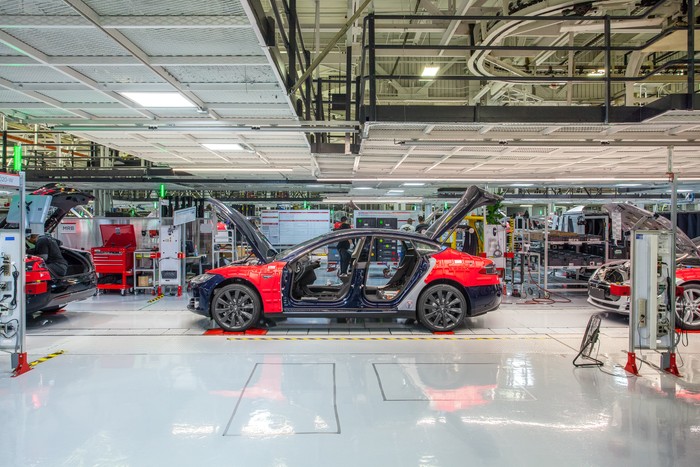
Tesla lawsuits target former employees over alleged trade-secret theft
The lawsuits claim proprietary information was stolen by workers who left to join startups Zoox and Xpeng.
Tesla has filed two lawsuits accusing former employees of stealing proprietary information before taking new jobs at rival startups.
One lawsuits names four former Tesla workers and self-driving startup Zoox as defendants. The group allegedly took information related to their former employer's inventory practices, warehouses, and operations management software.
The workers stole "proprietary information and trade secrets to help Zoox leapfrog past years of work needed to develop and run its own warehousing, logistics, and inventory control operations," according to excerpts of the lawsuit posted by The Verge. "These materials and knowhow were developed by Tesla over many years, and at great expense."
The second lawsuit names former Autopilot team member Guangzhi Cao, who was later hired by a Chinese startup, XPeng, that was recently implicated in another scandal involving intellectual property allegedly stolen from Apple's self-driving car project.
Cao was allegedly among a group of just a few dozen Tesla workers that had access to Autopilot source code. He is accused of uploading "complete copies" of the code to his iCloud account, including more than 300,000 files and directories, then trying to cover his tracks by deleting the files from his work computer and clearing his browser history.
"Absent immediate relief, Tesla believes Cao and his new employer, [XPeng], will continue to have unfettered access to Tesla's marquee technology, the product of more than five years' work and over hundreds of millions of dollars of investment, which they have no legal right to possess," the lawsuit says.
Tesla has opened its electric vehicle patent portfolio to be used by other companies without any licensing fees. The company has not followed the same open-source strategy with its Autopilot patents, however.
Automakers and other industry players have become increasingly protective of self-driving intellectual property. The nascent technology has apparently proved difficult to develop within the most optimistic projected time-frames. A shortage of talent with knowledge and expertise in fields such as machine learning has likely contributed to the situation.